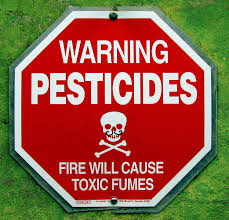This has not been a good week for glyphosate, the active ingredient in Roundup and other herbicides. On Friday, the World Health Organization (WHO) announced that it had classified glyphosate, the United States’ most widely-used pesticide, as “probably carcinogenic to humans.”
Now, the chemical has another strike against it. A study published today by the American Society of Microbiology’s journal mBio has linked glyphosate and two other widely-used herbicides–2,4-D and dicamba–to one of the most pressing public health crises of our time: antibiotic resistance.
This study found that exposure to these herbicides in their commercial forms changed the way bacteria responded to a number of antibiotics, including ampicillin,ciprofloxacin, and tetracycline–drugs widely used to treat a range of deadly diseases.
Dicamba, 2,4-D, and glyphosate have been in use for decades, so why have their antibacterial-resistance effects not been documented before? As the study’s lead author, Jack Heinemann, professor of genetics at the University of Canterbury in New Zealand, explains, when pesticides are tested for adverse effects, “it’s the lethal toxicity that people focus on.” In other words, how much of the chemical will kill an organism.
“What makes our study different, is that it is looking at a sub-lethal effect,” says Heinemann. “The effect we see requires that the bacteria stay alive.”

